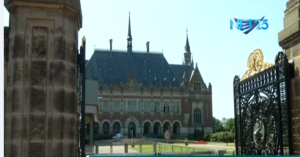
(Eagle News) — Malacanang has reiterated that the Philippines’ move to present its case against China to the Permanent Court of Arbitration in The Hague is in accordance with the law.
The Philippines questioned China’s territorial claim in the South China Sea in its petition to the United Nations court under the UN Convention on Law of the Sea (UNCLOS).
Presidential Communications Operations Office chair Herminio “Sonny” Coloma Jr., said that the petition of the Philippines filed with the Permanent Court of Arbitration was in accordance with the “rule of law.”
“Ang inihaing petisyon ng Pilipinas sa Permanent Court of Arbitration ay bilang pagtalima sa rule of law na nakapaloob sa United Nations Convention on the Law of the Sea o UNCLOS na kung saan isa ang Pilipinas sa 166 na mga bansang nag-ratipika ng nasabing kasunduan,” said Coloma Jr.in an interview over Radyo ng Bayan.
“Ang hakbang ng Pilipinas ay patuloy na umaani ng suporta mula sa iba’t ibang bansa sa buong mundo,” added Coloma, reacting to reports that China would ignore the decision of the UN court.
Rear Adm. Guan Youfei of China’s national defense ministry, who was in Singapore for Asia’s biggest security summit. said the arbitration is illegal.
“To put it simply, the arbitration case has gone beyond the jurisdiction of the arbitration court because the territorial and sovereignty dispute cannot be subject to arbitration. So, we see this arbitration is illegal and will not participate nor accept it,” the Chinese official was quoted when interviewed on Saturday.
The Permanent Court of Arbitration is expected to rule on the case soon.
The UN Charter and international law encourages peaceful settlement of rows through dialogue. The UNCLOS, on the other hand, respects the decision of the parties concerned to choose how to settle the disagreement. (PND)







